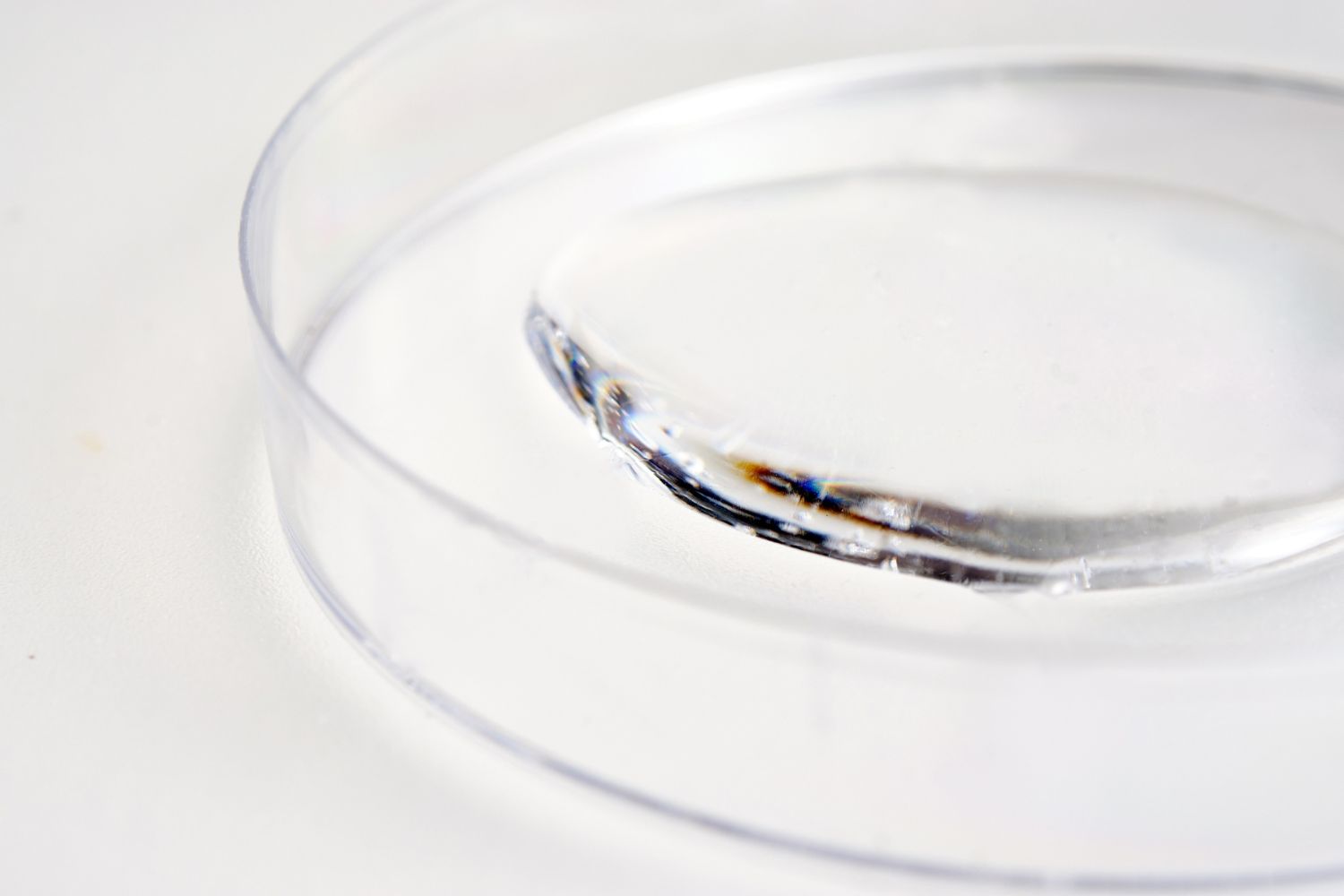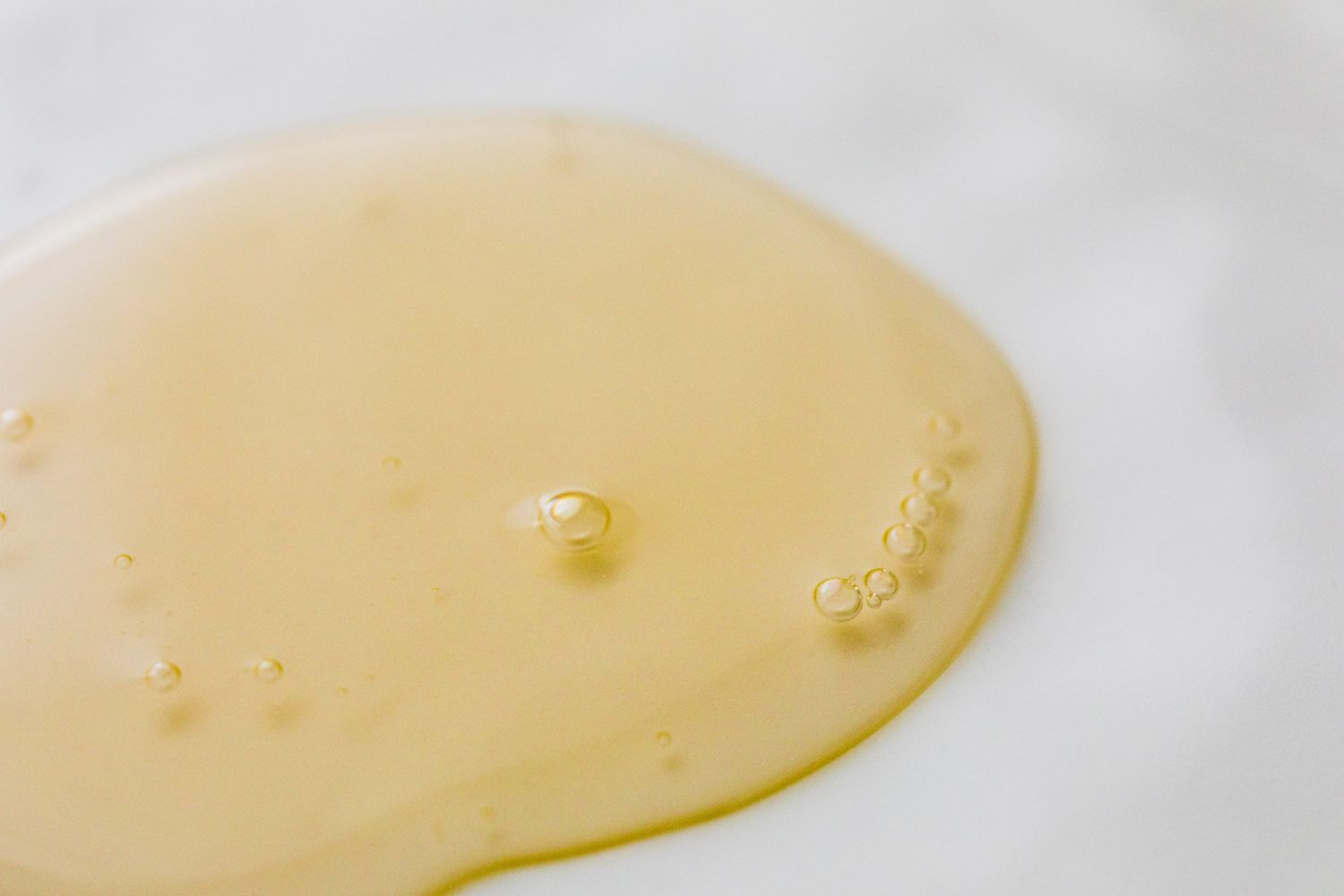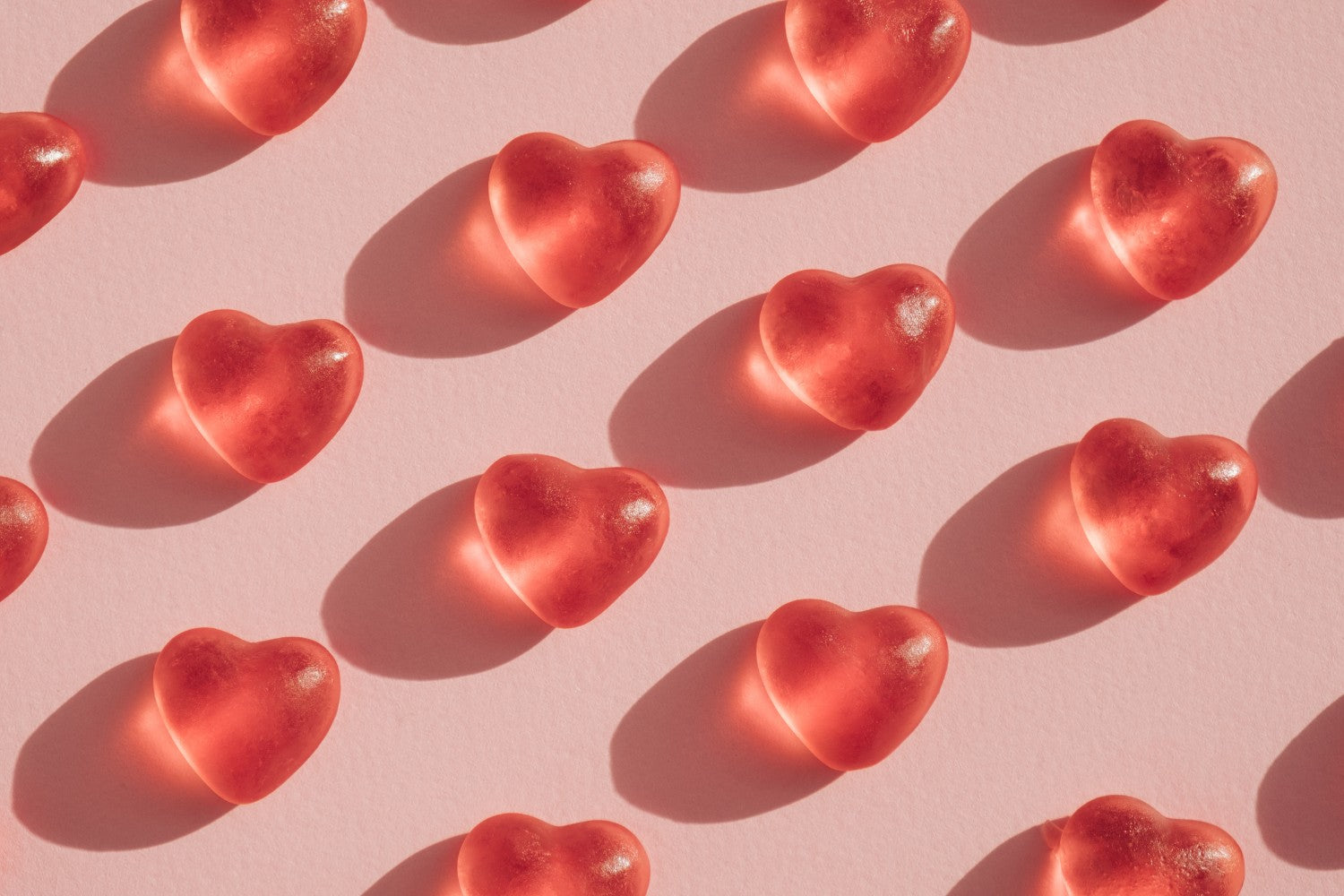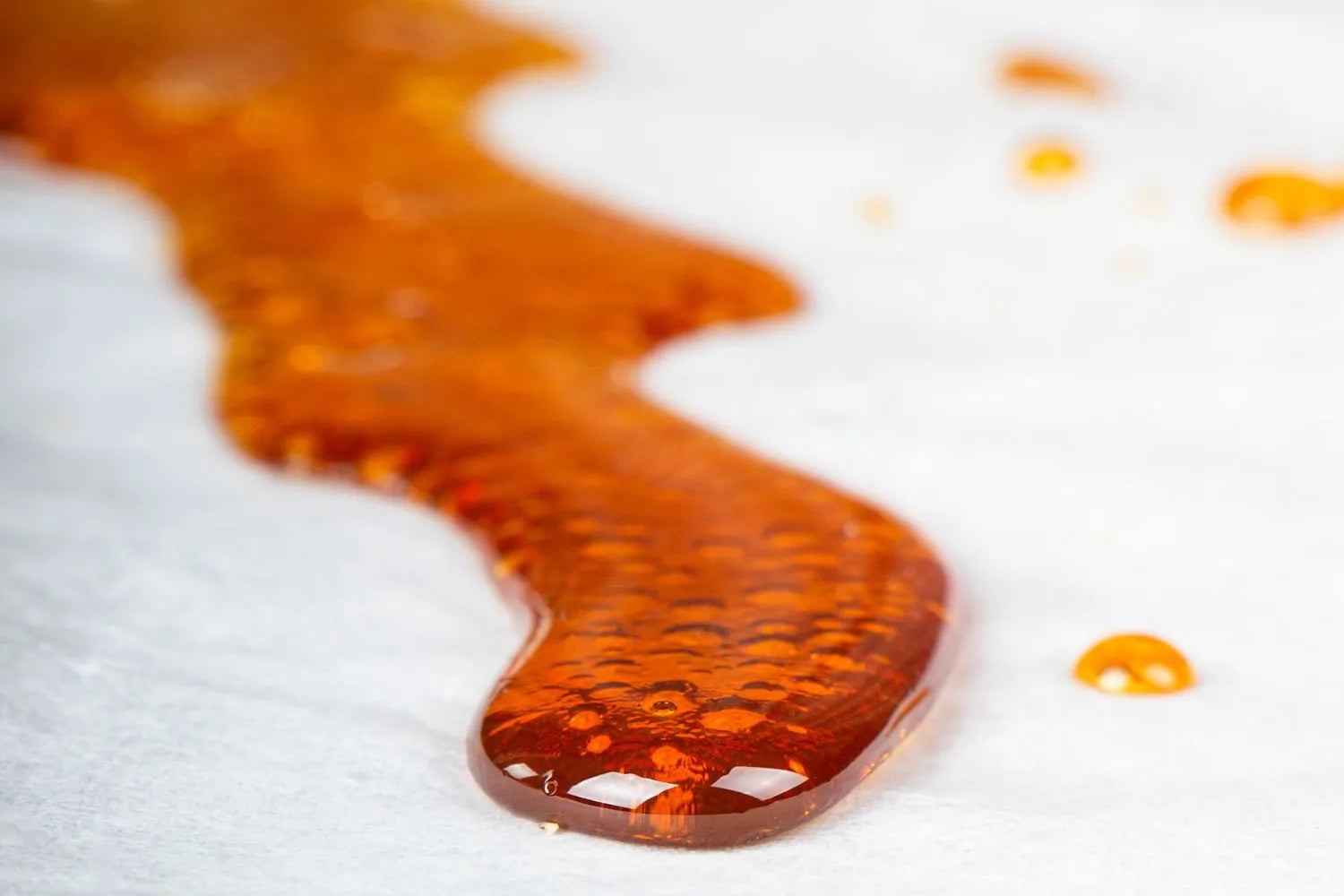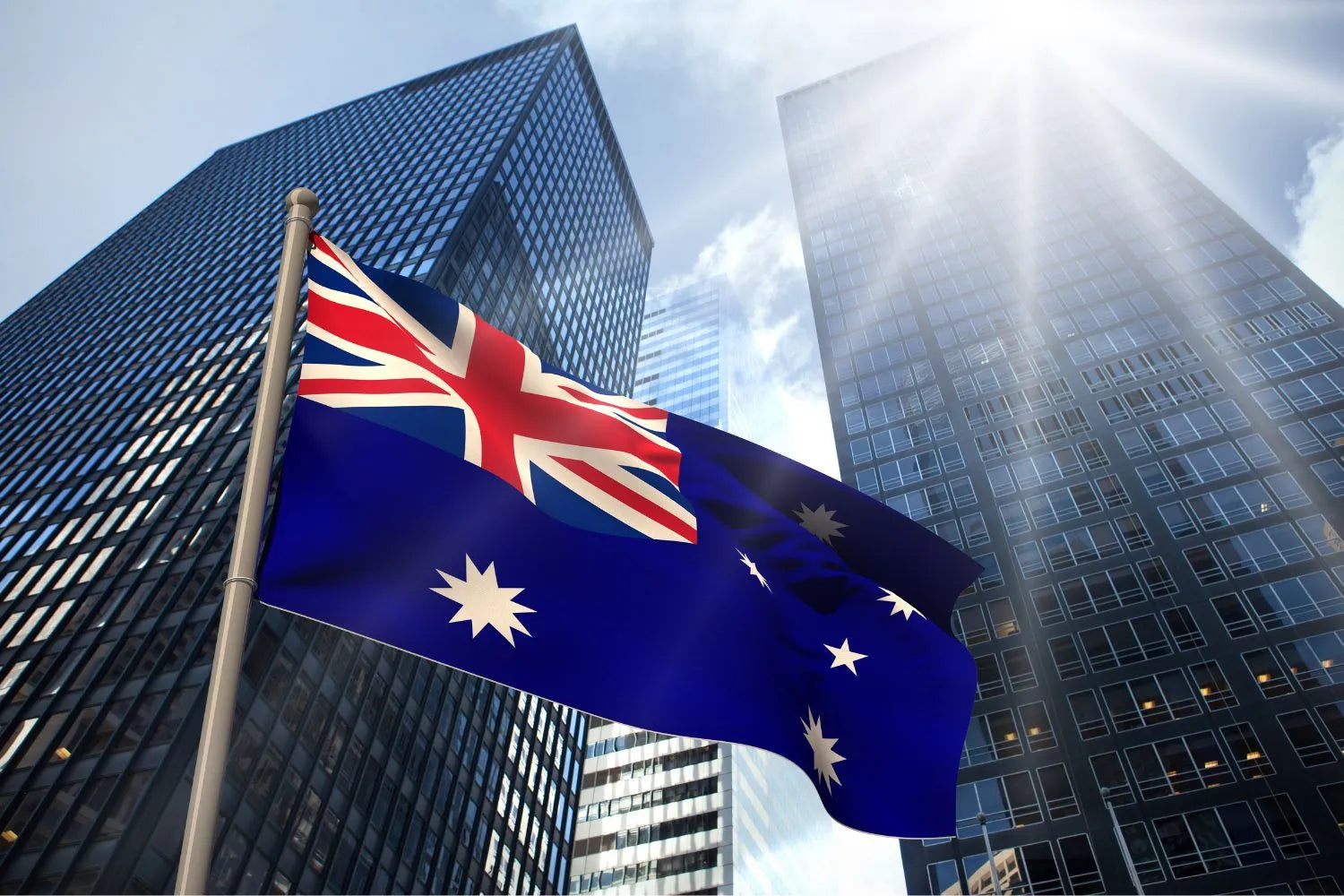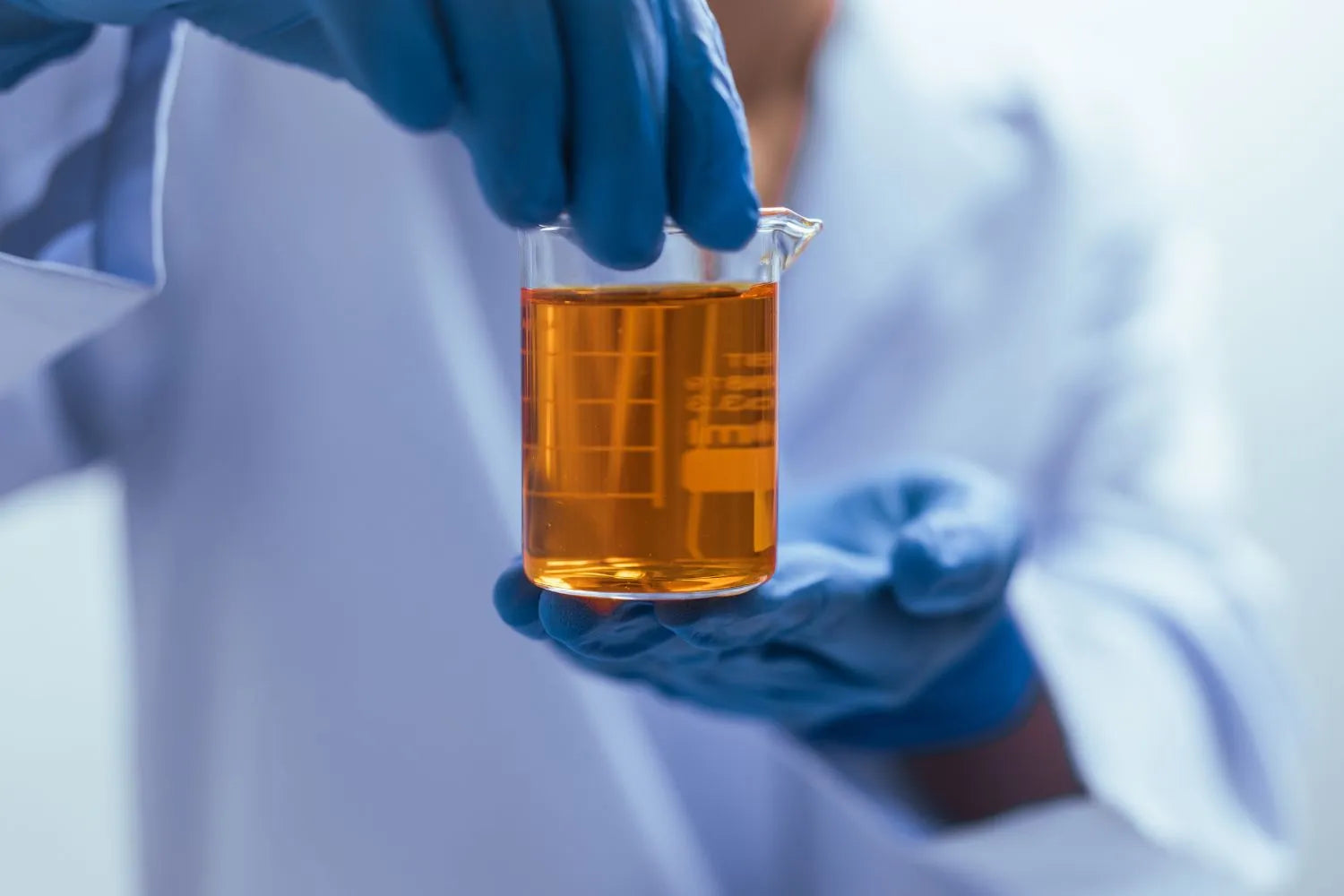Water-soluble CBD is one of the latest innovations in cannabinoid supplement products. Applicable to any ingestible or topical, using water instead of oil as a carrier yielded incredible results.
Due to its performance, water-soluble CBD solves many of the proverbial headaches plaguing conventional CBD oil and edible users.
Make no mistake, water-soluble CBD products are gaining traction. But what makes them so popular? How are they produced? And most importantly, are they right for you?
Is CBD Water-Soluble?
No, CBD isn't water-soluble - at least not in natural hemp extract form. Like all cannabinoids, cannabidiol is lipophilic, meaning it's attracted to fatty compounds. This is why CBD oils require a carrier such as olive, hempseed, or MCT oil.
Further complicating matters, cannabinoids are hydrophobic, so - like all oily substances - cannabinoids are repelled by water. Consequently, conventional CBD oils will never mix with water.
However, industrial manufacturers may have the equipment and expertise to create water-soluble CBD oil; more on that later.
What is Water-Soluble CBD?

Water-soluble CBD is (as the name implies) CBD formulated to be dissolved in water. Like we mentioned above, cannabinoids and H2O don't get along.
But thanks to new advancements in the hemp CBD industry, water-soluble CBD isn't only possible, but it also opens a vast array of unique and extraordinary items.
Types of Water-Soluble CBD Products
Making CBD water-soluble allows us to infuse any water-based product with cannabidiol (or any other cannabinoid).
These supplements offer the same versatility as conventional CBD oil, available in CBD isolate, broad-spectrum, and full-spectrum products. Water-soluble CBD also works with any product, making it useful for both oral consumption and topical application.
What is Water-Soluble Hemp Extract Used For?
We now have a basic understanding of these CBD products. So, what is water-soluble CBD used for? In short, consumers use these CBD products for their potential therapeutic effects, general wellness, or as a refreshing treat.
CBD Beverages
CBD beverages are drinks pre-infused with cannabidiol, such as:
- Juices
- Soft drinks
- Seltzers
- Ciders
- Coffee
- Mocktails
- Beer (no alcohol)
- Sports drinks
- Plain water
CBD Powder
CBD powder is water-soluble CBD made into a powdered drink mix, including:
- Flavored drink powder
- Dissolvable sports drinks
- Novelty candies
- Water-enhancers
CBD Water-Soluble Drops
Water-soluble CBD drops serve the same purpose as powder. However, having them in liquid form prevents residual powder from being left behind. Typical uses include:
- Water-enhancers
- Potency boosters
Topicals
Some examples include:
- Muscle creams
- Face masks
- Balms
How is Water Soluble CBD Different from Regular CBD Oil? Water-Soluble CBD vs. Oil
The differences between water-soluble CBD and regular CBD oil are substantial. Aside from mutually containing cannabidiol (or other cannabinoids) as their active ingredients, their differences are night and day.
Formulation
Let's start with the foundation. Most consumers know that conventional CBD oil is made from unaltered (at least molecularly) hemp extract. Manufacturers then infuse that extract into a carrier oil, often with some flavorings to offset the taste. The process is so simple that anyone can make CBD oil at home with a few common household products.
Water-soluble CBD is much trickier. Since cannabinoids are fat-based, they're repelled by water, making them impossible to dissolve in their natural state.
To achieve water solubility, CBD molecules have to undergo a complex industrial process, altering the compound's structure to make it water soluble.
Manufacturing Water-Soluble CBD
Effective, enjoyable, water-soluble products start with the highest quality hemp extract. However, once purification is complete, the mixture requires physical modifications at the molecular level. Once complete, the product will seamlessly dissolve in water or water-based products.
There's a lot to unpack, so we'll cover manufacturing techniques shortly.
Flavor
Although water-soluble CBD products can be used for oral and topical applications, a huge claim to fame is how much they enhance the CBD consumption experience.
Organic hemp extract providers face a massive obstacle: the plant-like, "earthy" aroma from broad-spectrum and full-spectrum CBD oil. Even the highest quality CBD gummies, baked goods, and other infused products may still have traces of plant flavor.
Water-based products, on the other hand, are easier to mask with flavors. You may notice a hint of bitterness if the flavor is mild - such as in a seltzer. However, juices or sodas are less likely to carry much (if any) unpleasant aftertaste.
How is Water-Soluble CBD Made?
There are a few ways to make water-soluble CBD. The methods vary in complexity, but all of them require high-tech equipment and trained experts. We'll cover some of the "easier" methods, but reputable vendors have the skill, equipment, and foresight to use emulsification as their preferred method.
"Emulsification" refers to the process of combining two otherwise insoluble substances - in this case, CBD and water. Although the CBD industry only adopted it recently, it's an established technique in the pharmaceutical and food industries.
Like a sledgehammer smashing through a wall, CBD molecules are chemically broken and scattered into smaller pieces, making it possible for them to "fit" in a water-based liquid.
But to facilitate the process, a surfactant is necessary. This is a chemical compound designed to reduce the surface tension of a liquid, separating the particles to allow the otherwise larger CBD molecules to dissolve.
Let's quickly look at each and see which one works the best.
Nanoemulsions vs. Microemulsions
There are two main approaches to emulsification: nanoemulsions and microemulsions. Both are effective ways to emulsify CBD and make it soluble in other liquids.
To reiterate, CBD molecules need to be smaller for water solubility to work. Both methods achieve the same goal, but one is superior for a simple reason.
Microemulsions
Microemulsion breaks down the compound into tiny droplets ranging from 100 to 400 nm (nanometers) using surfactants and co-surfactants.
Unfortunately, microemulsions require a larger amount of surfactants than the nano option, but manufacturers using microemulsions try to limit surfactant use. Consequently, it's impossible to infuse all of the available CBD into its water-based carrier. The lower CBD potential and larger droplets hinder the product's bioavailability. Nonetheless, bioavailability is still superior to conventional CBD oil.
In short, microemulsion is enough to do the job, but it's arguably the least desirable of the two.
Nanoemulsions
According to the source above, nanoemulsions achieve the same goal as their counterpart but result in a better product.
The key difference is that nanoemulsion breaks the CBD molecules into pieces ranging from just 1 to 100 nm in size.
Other Methods
There are a few "simpler" approaches to making water-soluble CBD products. But when it comes chemical processes like water infusion, "simpler" is usually synonymous with "inferior."
Physical Dispersion
Physical dispersion is, quick, cheap, and requires minimal industrial equipment. The process essentially forces the CBD to mix with water without nano or microemulsion.
Although it's enough to infuse the product, physical dispersion is akin to forcing a square peg into a round hole. Consequently, the mixture eventually clumps and separates. It also leaves behind a strong, "hempy" aroma that's nigh impossible to mask.
Chemical Co-Solvents
This approach uses chemical solvents to break down CBD hemp extract and make it water-soluble.
In terms of results, the co-solvent method creates a decent product. However, these chemicals may pose a health risk. CBD separation may also occur, as it can adhere to the inside of its container.
Ultrasonic
The ultrasonic dispersion method follows the emulsification approach. But rather than relying exclusively on surfactants, the process uses a combination of surfactants and sonic waves to break down the CBD molecules.
However, this method is extremely expensive and doesn't offer the same bioavailability as nanoemulsion.
How Does Nano CBD Oil Work with the Body's Endocannabinoid System (ECS)?
Cannabidiol doesn't change based on its extraction or delivery method, so nano CBD oil works the same way with the body's endocannabinoid system as any other form of CBD.
Although CBD is a cannabinoid, it doesn't bind with either the CB1 or CB2 endocannabinoid receptors. This may seem strange and contradictory, but it's not the only cannabinoid with a weak affinity for the CB1 and CB2 pathways.
Instead, CBD works through other pathways in the human body, such as the serotonin, GABA, and TRPV1 receptors. CBD alters the endocannabinoid receptors ' shape through indirect means that still aren't fully clear. This change affects how cannabinoids bind with the CB1 and CB2 pathways. This interaction is likely how CBD mitigates THC intoxication and its associated side effects.
However, nano-CBD oil is a game-changer due to its higher efficacy. We'll discuss that next.
What are the Benefits of Water-Soluble CBD Products?
Water-soluble formulation improves CBD's performance and efficiency. Here are a few reasons to try water-soluble CBD.
Increased Bioavailability
"Bioavailability" refers to the amount of a substance (in this case, CBD) left over for the human body to harness. This benchmark changes based on your consumption method.
For example, conventional CBD oils and edibles have a bioavailability of just 20%. This means that if you consume a 10 mg CBD oil or edible dose, you'll only enjoy the benefits of two milligrams. The low bioavailability is due to the first-pass effect during liver metabolism, which eliminates the majority of your cannabidiol dose.
However, making the products water-soluble exponentially improves bioavailability. Since the CBD is attracted to water, it will naturally be drawn to other pathways, circumventing or minimizing liver metabolism.
A 2022 study published by Shay et al. in the academic journal Nutrients showed a dramatic increase in CBD blood concentration compared to conventional oil-based options. They also noted that ingesting food prior to CBD consumption further increased bioavailability [1].
Easily Mixes into Water-Based Beverages and Personal Care Products
As we covered earlier, water-soluble CBD opens up a new realm of options. Many consumers now can enjoy CBD products like sodas, seltzers, drink mixes, flavor enhancers, and water-based topicals.
They can also easily mix CBD with their favorite drinks and still maintain the same accurate dosing.
Faster Response Time
By elementary school, we learn that the human body is roughly 60 to 70% water. This means that compounds suspended in a water-based carrier will absorb through a wider range of pathways.
In turn, opening those new routes speeds up absorption, as discovered by Nakano et al. in Medical Cannabis and Cannabinoids [2]. Faster absorption also means water-soluble CBD enters the bloodstream quickly, leading to an onset of effects within 15 to 30 minutes.
Water-Soluble Liquid vs. Water-Soluble Powder
Water-soluble CBD liquids and powders are both used to infuse water and water-based products. The former comes in liquid form, while the latter is a fine, dissolvable powder.
Both products are easy and cost-effective to manufacture, especially with Arvanna's proprietary Allium Water-Soluble CBD Liquid and Water-Soluble CBD Powder.
What Does Water-Soluble CBD Taste Like? Will It Affect My Drink?
On its own, water-soluble CBD is virtually flavorless. However, cannabis emulsion can leave a bitter aftertaste, especially if other chemicals - like surfactants - are used. These are compounds that reduce the surface tension of a liquid to facilitate solubility.
It's understandable to want the best flavor experience in your CBD regimen. As you try different water-based beverages and CBD products, you'll notice that some brands excel more than others.
Effective, reliable, consistent water solubles start with hemp quality assurance, meaning good manufacturing practices (GMP) and strict controls from seed to sale.
Also, ensure the products undergo third-party tests to prevent any residual solvents or other compounds from ruining the drink's flavor - and possibly your health.
Can You Make Full Spectrum Water Soluble CBD?
Yes, Arvanna can make full-spectrum and broad-spectrum water-soluble CBD. Our emulsification process involves strict quality control with industry-leading equipment and expertise.
Is CBD Isolate Water-Soluble?
No, conventional CBD isolate isn't water-soluble. Without undergoing the necessary alterations, the CBD molecule remains attracted to fats and repelled by water.
Only through emulsification can CBD isolate be made water-soluble.
What are the Side Effects of Water-Soluble CBD?
Unless you have an allergy or sensitivity to the product's ingredients, the potential side effects of water-soluble CBD are no different than with conventional products.
Some potential reactions include:
- Appetite changes
- Drowsiness
- Dry mouth
- Diarrhea
- Nausea
- Headache
Fortunately, these adverse effects are rare, mild, and typically resolve themselves.
Can You Make Other Cannabinoids Water-Soluble?
Yes, Arvanna can provide any water-soluble cannabinoid product. Compounds like CBG, CBC, and CBN are becoming prominent in the hemp extract market.
Fortunately, cannabinoids are universally lipophilic and can all be made hydrophilic using the same emulsification processes.
Where to Find Private Label Water Soluble CBD?
Arvanna offers an array of private-label water-soluble CBD and other cannabinoid products. Our proprietary emulsification method makes us an industry leader in water-based CBD bioavailability, purity, and safety.
This company is GMP and ISO certified, ensuring each product is made using industry best practices while remaining compliant with all regulatory and safety standards.
Closing Statement
Water-soluble formulation is the best solution to maximize CBD products' bioavailability, flavor, and versatility.
But like conventional CBD, some brands are better than others. Before buying water-soluble CBD, consider its manufacturing method, third-party testing, and hemp source.
Sources
Abbotts, K. S. S., Ewell, T. R., Butterklee, H. M., Bomar, M. C., Akagi, N., Dooley, G. P., & Bell, C. (2022). Cannabidiol and Cannabidiol Metabolites: Pharmacokinetics, Interaction with Food, and Influence on Liver Function. Nutrients, 14(10), 2152. https://doi.org/10.3390/nu14102152
Nakano, Y., Tajima, M., Sugiyama, E., Sato, V. H., & Sato, H. (2019). Development of a Novel Nanoemulsion Formulation to Improve Intestinal Absorption of Cannabidiol. Medical Cannabis and Cannabinoids, 2(1), 35–42. https://doi.org/10.1159/000497361

